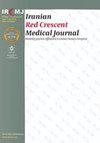新冠肺炎大流行期间医学生对拒绝接种疫苗的看法和态度:一项多中心研究
IF 0.2
4区 医学
Q3 MEDICINE, GENERAL & INTERNAL
引用次数: 0
摘要
背景:新冠肺炎疫苗的快速开发和生产引起了人们对其安全性和有效性的担忧,这导致了一些人对疫苗的犹豫。目的:本研究旨在确定医学生对新冠肺炎疫苗和疫苗犹豫的看法和态度。方法:来自三所医学院的977名志愿者参与了这项研究,并通过在线调查收集数据。使用由40个项目和四个部分组成的问卷进行数据收集,包括社会人口统计信息、新冠肺炎疫苗、疫苗排斥和疫苗犹豫。在调查问卷中,学生们被问及他们接种疫苗的愿望,他们是否想为家人接种疫苗,接种疫苗的犹豫不决或拒绝,以及不想接种疫苗的原因。结果:在学生中,疫苗排斥率为15.4%(n=150),疫苗犹豫率为18.9%(n=185)。虽然65.7%(n=642)希望接种新冠肺炎疫苗,但希望家人接种疫苗的比率为54.1%(n=529)。年龄和处于临床前阶段对疫苗接种决定有积极影响,而新冠肺炎病史和受疫苗技术影响对接种决定有消极影响。男性疫苗接受率显著高于女性(P=0.002),临床前学生疫苗接受率明显高于临床一年级学生(P=0.049),无新冠肺炎病史者疫苗接受率高于有新冠肺炎病史者(P<0.001)。结论:医学生对新冠肺炎疫苗的态度是积极的。然而,考虑到一些学生对接种疫苗或反对接种疫苗犹豫不决,我们认为将积极态度发展计划纳入医学教育课程是有益的。本文章由计算机程序翻译,如有差异,请以英文原文为准。
Medical Students' Views and Attitudes toward Vaccine Refusal during the COVID-19 Pandemic: A Multicenter Study
Background: The rapid development and production of COVID-19 vaccines have raised concerns about their safety and efficacy, which have contributed to vaccine hesitancy among some people.
Objectives: This study aimed to determine the opinions and attitudes of medical students about COVID-19 vaccines and vaccine hesitancy.
Methods: Nine hundred seventy-seven volunteer students from three medical faculties participated in this study, and data were collected via an online survey. A questionnaire consisting of 40 items and four parts, including sociodemographic information, COVID-19 vaccines, vaccine rejection, and vaccine hesitancy was used for data collection. In the questionnaire, the students were asked about their desire to be vaccinated, whether they want to be vaccinated for their families, vaccination indecision or rejection, and the reasons for not wanting to be vaccinated.
Results: Among the students, the rate of vaccine rejection was 15.4% (n=150), and the rate of vaccine hesitancy was 18.9% (n=185). While 65.7% (n=642) wanted to be vaccinated against COVID-19, the rate of those who wanted their families to be vaccinated was 54.1% (n=529). Age and being in the preclinical period positively affected the vaccination decision, while a history of COVID-19 and being affected by vaccine technology negatively influenced the decision to be vaccinated. The vaccine acceptance rate was significantly higher in men than in women (P=0.002), in preclinical students than in clinical year students (P=0.049), and in those without a history of COVID-19 than in those who had COVID-19 (P<0.001).
Conclusion: The attitudes of medical students toward COVID-19 vaccines were positive. However, considering that some students were hesitant to be vaccinated or against vaccination, we think it would be beneficial to integrate positive attitude development programs into the medical education curriculum.
求助全文
通过发布文献求助,成功后即可免费获取论文全文。
去求助
来源期刊

Iranian Red Crescent Medical Journal
MEDICINE, GENERAL & INTERNAL-
CiteScore
1.16
自引率
0.00%
发文量
0
期刊介绍:
The IRANIAN RED CRESCENT MEDICAL JOURNAL is an international, English language, peer-reviewed journal dealing with general Medicine and Surgery, Disaster Medicine and Health Policy. It is an official Journal of the Iranian Hospital Dubai and is published monthly. The Iranian Red Crescent Medical Journal aims at publishing the high quality materials, both clinical and scientific, on all aspects of Medicine and Surgery
 求助内容:
求助内容: 应助结果提醒方式:
应助结果提醒方式:


